Tattoos have gained widespread popularity as a form of self-expression, with countless individuals embracing this ancient art form. However, along with the beauty and symbolism of tattoos, some individuals may experience an unexpected and uncomfortable sensation—itchiness. This article delves into the intriguing question of why tattoos can induce itchiness and explores the underlying factors contributing to this phenomenon. So, if you find yourself wondering, “Why does my tattoo get itchy?” read on to uncover the fascinating intricacies of this common occurrence.
- The Complex Nature of Tattooing:
Tattooing involves the insertion of pigments into the dermal layer of the skin using a needle. This process causes trauma to the skin, leading to the release of various biological mediators that initiate the healing response. It is this intricate healing process that intertwines with the sensation of itchiness. - Inflammatory Response and Itching:
Upon receiving a tattoo, the body’s immune system detects the injured area and activates an inflammatory response. Inflammation is a crucial part of the healing process, aimed at protecting the body and initiating tissue repair. One of the key components of this response is the release of histamine, a chemical mediator involved in immune responses and allergic reactions. Histamine plays a pivotal role in triggering itchiness, as it binds to specific receptors on nerve cells, stimulating an itching sensation. - Histamine and Pruritus:
Pruritus, the medical term for itching, is often a result of histamine release in response to inflammation. In the context of tattoos, the release of histamine can be triggered by various factors, such as the introduction of foreign substances (tattoo ink) into the skin, trauma caused by the needle, and subsequent tissue damage. Histamine interacts with specific receptors on nerve fibers, initiating an itch signal that travels to the brain. - Allergic Reactions and Itching:
Sometimes, tattoo-related itching may be a consequence of an allergic reaction to the tattoo ink or other components used during the tattooing process. Allergic reactions occur when the immune system mistakenly perceives certain substances as threats and mounts an immune response against them. This immune response includes the release of histamine, leading to localized inflammation and itching. - Dry Skin and Tattoo Itchiness:
Apart from inflammatory responses and allergic reactions, dry skin can also contribute to tattoo itchiness. Tattoos located in areas prone to dryness, such as the elbows, knees, or shins, may be particularly susceptible. Dry skin lacks proper hydration, compromising its protective barrier function. As a result, the skin becomes more vulnerable to irritants, including tattoo ink, which can trigger itching. - Psychological Factors:
Interestingly, psychological factors can also influence the perception of tattoo itchiness. Anxiety, stress, and anticipation surrounding the tattooing process can heighten the awareness of bodily sensations, leading individuals to perceive mild sensations as itchiness. This psychological connection underscores the importance of managing stress and maintaining a positive mindset during the tattooing experience.
What causes itchiness in tattoos?
Tattoos have become increasingly popular forms of body art, with millions of people worldwide sporting intricate designs on their skin. While tattoos can be visually stunning, some individuals experience an uncomfortable side effect: itchiness. Understanding the causes of itchiness in tattoos is crucial to ensuring proper care and minimizing discomfort. In this article, we will delve into the technical aspects of tattoo itchiness, shedding light on the underlying factors that contribute to this sensation.
- Inflammatory Response:
The process of tattooing involves the insertion of ink into the dermis, the second layer of the skin. This invasive procedure triggers an inflammatory response from the body’s immune system. The immune cells release histamines, which are chemicals responsible for promoting inflammation. Histamines can also induce itching as part of the body’s defense mechanism against potential irritants or injuries. - Allergic Reactions:
Tattoo ink consists of various pigments and carrier solutions, each with its own chemical composition. Some individuals may have hypersensitivity or allergies to specific components present in tattoo ink. Allergic reactions can manifest as itchiness, redness, swelling, or even hives around the tattooed area. Common allergenic substances found in tattoo inks include nickel, cobalt, and mercury-based compounds. - Dry Skin:
Proper tattoo aftercare is vital to ensure optimal healing. Failing to moisturize the tattooed skin adequately can result in dryness and flakiness. Dry skin is more prone to itchiness due to increased sensitivity. Additionally, the scabbing process during the initial healing stages can cause mild to moderate itchiness. Scratching the scabs can disrupt the healing process, leading to complications such as infection or ink loss. - Sun Exposure:
Exposing a fresh tattoo to direct sunlight or tanning beds can have detrimental effects on the healing process. Ultraviolet (UV) radiation can damage the skin and interfere with the production of melanin, a pigment responsible for skin coloration. Sunburns or excessive UV exposure can lead to skin dryness, peeling, and itchiness. Therefore, it is crucial to protect tattoos from sun exposure by using sunscreen with a high SPF and covering them with clothing. - Inadequate Tattoo Aftercare:
Following the proper aftercare instructions provided by the tattoo artist is crucial for minimizing potential complications and discomfort. Failing to clean the tattooed area regularly, using harsh soaps or cleansers, or applying excessive amounts of ointment can disrupt the healing process and increase the likelihood of itchiness. It is essential to strike a balance between keeping the tattoo clean and adequately moisturized without overdoing it. - Psychological Factors:
Itchiness can also be influenced by psychological factors such as stress and anxiety. Psychological stressors can exacerbate physical sensations, including itchiness. Individuals who are prone to anxiety or have a history of skin conditions like eczema may be more susceptible to experiencing intense itching in their tattoos.

Is it normal for a new tattoo to itch?
Getting a new tattoo can be an exciting experience, but it is not uncommon for individuals to wonder if itching is a normal part of the healing process. It is essential to understand that tattoos involve the introduction of foreign substances into the skin, leading to a complex biological response. While itching can be a common occurrence during the healing period, it is crucial to differentiate between normal healing and potential complications. When a tattoo is applied, a tattoo artist uses a needle to deposit ink into the dermis, the second layer of the skin. The body perceives this process as an injury and initiates an immune response to repair the damaged tissue. The immune cells release histamine, a compound that plays a significant role in the body’s inflammatory response.
Histamine can cause blood vessels to dilate, leading to redness and swelling around the tattooed area. As part of the healing process, the body also produces new skin cells and collagen to close the wound and encapsulate the ink particles. During this regeneration phase, itchiness can occur. Itching is primarily a result of the release of cytokines, chemical messengers that trigger inflammation and promote healing. These cytokines can stimulate nerve endings in the skin, leading to an itching sensation. Furthermore, as the skin heals, it forms a scab or crust over the tattooed area. As the scab dries and contracts, it can cause tightness and discomfort, resulting in an itching sensation. However, it is crucial to resist the urge to scratch the tattoo, as this can disrupt the healing process and increase the risk of complications, such as infection or ink dispersion. While some level of itching is considered normal during the tattoo healing process, it is essential to be aware of signs that may indicate a problem. If the itching becomes severe and persistent or is accompanied by other symptoms like excessive redness, swelling, pus, or pain, it may be indicative of an infection or an allergic reaction. In such cases, it is crucial to seek immediate medical attention. To alleviate normal itching during the healing process, several measures can be taken. It is important to keep the tattoo clean and moisturized to prevent excessive dryness, which can contribute to itching.
However, it is crucial to use a fragrance-free and hypoallergenic moisturizer specifically formulated for tattoo aftercare to avoid potential irritation. Applying a cold compress or using an over-the-counter hydrocortisone cream can also provide temporary relief from itching. However, it is advisable to consult with the tattoo artist or a dermatologist before using any products on the healing tattoo, as some ingredients may be detrimental to the healing process. In conclusion, experiencing itching after getting a new tattoo is generally considered normal due to the body’s natural healing response. The immune system’s reaction, the production of cytokines, and the formation of a scab can all contribute to the itching sensation. However, it is important to monitor the tattoo for any signs of infection or allergic reactions. Remember to resist the urge to scratch and follow proper aftercare instructions provided by the tattoo artist to ensure optimal healing and long-term satisfaction with your new tattoo.

How long does the itching phase last after getting a tattoo?
The itching phase after getting a tattoo is a common occurrence experienced by individuals who undergo the tattooing process. It is essential to understand the factors that contribute to this itching sensation and how long it typically lasts. Tattoo-related itching is primarily attributed to the body’s natural healing response and the interaction between the tattoo ink and the skin. Following the completion of a tattoo, the body initiates a series of biological processes to repair the damaged skin and promote the healing of the tattooed area. The itching sensation arises during the initial stage of this healing process and can last for a variable duration, depending on several factors. One significant factor affecting the duration of the itching phase is the individual’s unique healing process. Each person’s body has a distinct rate of healing, influenced by factors such as age, overall health, and immune system functionality.
Younger individuals with robust immune systems tend to experience shorter itching phases compared to older individuals or those with compromised immune systems. Additionally, the size and complexity of the tattoo play a role in determining the duration of the itching phase. Larger and more intricate tattoos typically require more time for the skin to heal fully, thereby prolonging the itching sensation. The location of the tattoo on the body can also influence the duration of itching. Areas with thinner skin, such as the inner wrist or ankle, are more prone to extended itching periods compared to regions with thicker skin. Another factor to consider is the aftercare routine implemented by the individual. Proper aftercare, as recommended by professional tattoo artists, involves keeping the tattooed area clean, moisturized, and protected. Failing to follow these guidelines may lead to complications, such as dryness or irritation, which can exacerbate the itching phase. By adhering to a diligent aftercare routine, individuals can potentially minimize the duration of the itching phase. On average, the itching phase after getting a tattoo can last anywhere from one to three weeks. However, it is crucial to note that this duration is approximate and may vary significantly depending on the aforementioned factors.
During this period, it is essential to resist the urge to scratch or pick at the tattoo, as it can compromise the healing process and potentially lead to infections or scarring. To alleviate the itching sensation, individuals can employ various techniques recommended by tattoo professionals. These techniques include gently applying fragrance-free moisturizers or ointments specifically formulated for tattoo aftercare, using cool compresses, and avoiding exposure to direct sunlight, excessive heat, or abrasive fabrics. In summary, the itching phase after getting a tattoo is a natural part of the healing process. It typically lasts between one to three weeks, although individual factors such as age, overall health, tattoo size and complexity, and aftercare routine can influence the duration. By understanding the underlying mechanisms and following proper aftercare practices, individuals can ensure a smoother healing process and minimize the discomfort associated with the itching phase after getting a tattoo.

What are some common remedies for itchy tattoos?
Itchy tattoos can be an uncomfortable experience for individuals seeking to showcase their body art. Tattoo itchiness is a common post-tattooing symptom caused by the body’s natural healing process. While it is crucial to allow the tattoo to heal naturally, there are several remedies that can alleviate itchiness and promote the overall healing of the tattoo. In this article, we will explore some common remedies for itchy tattoos, providing technical insights and practical solutions for individuals seeking relief.
- Moisturization and Hydration:
Proper moisturization is essential for tattoo aftercare, as it helps combat dryness and itching. Opt for a fragrance-free, hypoallergenic moisturizer or a specialized tattoo aftercare product containing natural ingredients like shea butter or coconut oil. Applying the moisturizer gently over the tattooed area will help keep the skin hydrated and minimize itching. It is important to avoid excessive moisturization, as it may hinder the skin’s natural healing process. - Cold Compresses:
Using cold compresses can provide temporary relief from tattoo itchiness. Wrap ice packs or a clean cloth soaked in cold water around the tattooed area for a few minutes. The cold temperature helps soothe the skin, reduce inflammation, and numb the itching sensation. Ensure not to apply ice directly to the tattoo, as it may damage the healing skin. - Avoid Scratching and Irritation:
Although itchy tattoos can be incredibly tempting to scratch, it is vital to resist the urge. Scratching can damage the tattooed area, leading to potential infections and prolonging the healing process. Instead, gently pat or tap the itchy area to minimize discomfort. Wearing loose-fitting clothing and avoiding materials that may irritate the tattoo, such as rough fabrics or excessive friction, will also prevent additional itching. - Antihistamine Medication:
For persistent and severe itching, over-the-counter antihistamine medication may be considered. Antihistamines work by reducing the body’s histamine response, which can help alleviate itching and minimize allergic reactions. However, it is advisable to consult a healthcare professional before using any medication, as they can provide personalized guidance based on individual circumstances and any potential drug interactions. - Aloe Vera Gel:
Aloe vera gel, known for its soothing properties, can be beneficial for relieving tattoo itchiness. Obtain pure aloe vera gel or a specifically formulated aloe-based tattoo aftercare product. Gently apply a thin layer of the gel over the tattooed area, allowing it to absorb into the skin. Aloe vera helps hydrate the skin, reduce inflammation, and provide a cooling sensation, reducing the itchiness associated with the healing process. - Patience and Proper Aftercare:
It is crucial to allow the tattoo to heal naturally and avoid excessive intervention. Following proper aftercare instructions provided by the tattoo artist or a reputable source is essential. This includes avoiding direct sunlight, swimming pools, saunas, and excessive sweating during the healing period. Maintaining good hygiene, avoiding harsh chemicals, and refraining from picking at scabs or peeling skin are equally vital.

Can certain colors or inks cause more itching than others?
Tattoos have become increasingly popular as a form of self-expression and body art. However, it’s not uncommon for individuals to experience itching after getting a tattoo. While the primary focus is on addressing the question “Why does my tattoo get itchy?” it is worth exploring whether specific colors or inks can contribute to increased itching sensations. In this article, we will delve into this topic, shedding light on the potential factors that may influence itching and provide insights into the role of colors and inks in this context. When discussing the potential itchiness caused by colors or inks used in tattoos, it is essential to understand that the skin’s response to tattooing varies from person to person. Numerous factors can influence the level of itching experienced, including individual skin sensitivity, the skill of the tattoo artist, aftercare practices, and the overall healing process.
However, certain components present in some colors or inks could contribute to heightened itchiness in some cases. One factor to consider is the presence of allergenic compounds in tattoo pigments. Allergies to tattoo ink can result in various adverse reactions, including itching, redness, and swelling. While any color or ink can potentially contain allergenic substances, certain pigments have been reported to have a higher prevalence of causing allergic reactions. Red pigments, particularly those containing mercury sulfide (HgS), are known to be more commonly associated with allergic responses and subsequent itching. Furthermore, the size and composition of the pigment particles can also impact the skin’s reaction. Smaller particles are more likely to be engulfed by immune cells, triggering an inflammatory response that can lead to itching. In contrast, larger particles may cause physical irritation, exacerbating the itchiness. Pigments composed of organic compounds, such as azo pigments, have been found to be more likely to induce allergic reactions and itching compared to inorganic pigments like iron oxide. Apart from the pigments themselves, the carrier substances used in tattoo inks can play a role in skin reactions. The carrier solution helps distribute the pigments evenly and ensures they penetrate the skin during the tattooing process. Some carriers may contain alcohol, glycerin, or other additives that can cause dryness or irritation, leading to itchiness.
Additionally, certain preservatives or contaminants present in the ink formulation can elicit allergic responses in susceptible individuals, resulting in itching as a symptom. It is important to note that the research in this area is still evolving, and more studies are needed to provide comprehensive insights into the specific relationships between colors, inks, and itching. However, tattoo artists and individuals considering getting a tattoo should be aware of the potential factors that may contribute to increased itching. Communicating any known allergies or sensitivities to the tattoo artist beforehand can help them make informed decisions regarding ink selection and minimize the risk of adverse reactions. In conclusion, while individual responses to tattooing can vary, certain colors or inks may have a higher likelihood of causing itching due to the presence of allergenic compounds or particles that trigger immune responses. Red pigments containing mercury sulfide and organic pigments, as well as carrier solutions with potential irritants, may contribute to increased itchiness in some cases. It is crucial to prioritize proper aftercare and consult with a healthcare professional if persistent or severe itching occurs to rule out any underlying complications.

Are there any signs of infection that may be mistaken for normal itching after getting a tattoo?
After getting a new tattoo, it is common to experience some itching as part of the natural healing process. However, it is crucial to distinguish between normal itching and signs of infection that may be mistaken for it. Identifying potential signs of infection is crucial to ensure proper care and prevent complications. In this article, we will explore various signs of infection that may be misinterpreted as normal itching after getting a tattoo, helping you to make informed decisions about your tattoo aftercare.
- Redness and Increased Swelling:
While mild redness and swelling are typical after getting a tattoo, persistent or excessive redness and swelling beyond the initial healing stage could be indicative of an infection. If the redness intensifies or spreads beyond the tattooed area and is accompanied by increased swelling, it is essential to consult a healthcare professional for further evaluation. - Prolonged Heat and Warmth:
Normal itching after a tattoo is usually accompanied by mild warmth around the tattooed area due to increased blood flow during the healing process. However, if the area remains excessively hot to the touch, or if the warmth persists or increases beyond the expected healing time, it might be a sign of infection. Monitoring the temperature and seeking medical advice is advisable in such cases. - Intense and Prolonged Itching:
Itching is a common part of the tattoo healing process, primarily due to the formation of scabs and the regeneration of new skin cells. However, if the itching becomes severe, uncontrollable, or persists beyond the initial healing stage, it may indicate an infection. Itchy sensations accompanied by pain, tenderness, or oozing of pus should be evaluated by a medical professional. - Increased Pain or Discomfort:
After getting a tattoo, some level of pain or discomfort is expected, especially during the first few days. However, if the pain intensifies, becomes unbearable, or persists for an extended period, it could be a sign of an infection. Additionally, sharp or throbbing pain, especially when accompanied by other signs such as fever or chills, should be taken seriously and promptly assessed by a healthcare provider. - Presence of Unusual Discharge:
During the initial healing stage, it is common for a tattoo to produce a clear or slightly yellowish fluid called plasma. However, if the fluid changes in color, consistency, or odor (such as becoming thick, greenish, or foul-smelling), it may indicate an infection. Any abnormal discharge, including pus, should be promptly addressed by a medical professional. - Systemic Symptoms:
While itching is a localized symptom, signs of infection can also manifest as systemic symptoms affecting the entire body. If you experience fever, chills, fatigue, or swollen lymph nodes alongside itching, it is essential to seek immediate medical attention, as these could indicate an infection spreading beyond the tattoo site.

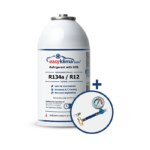
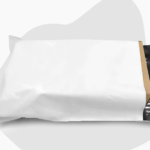













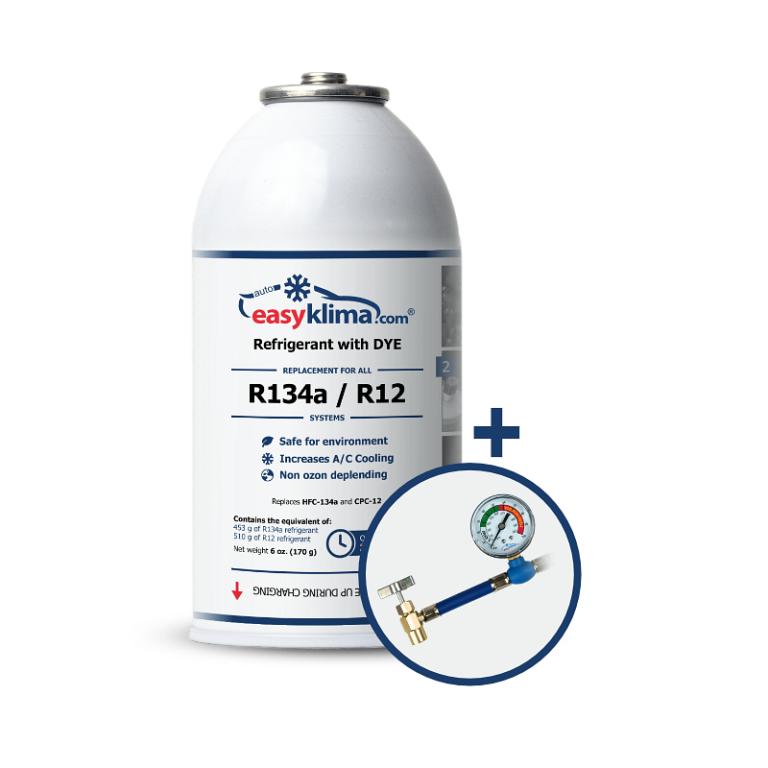
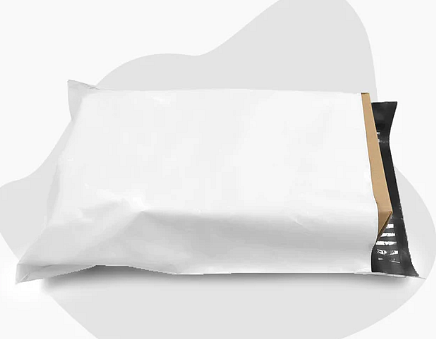

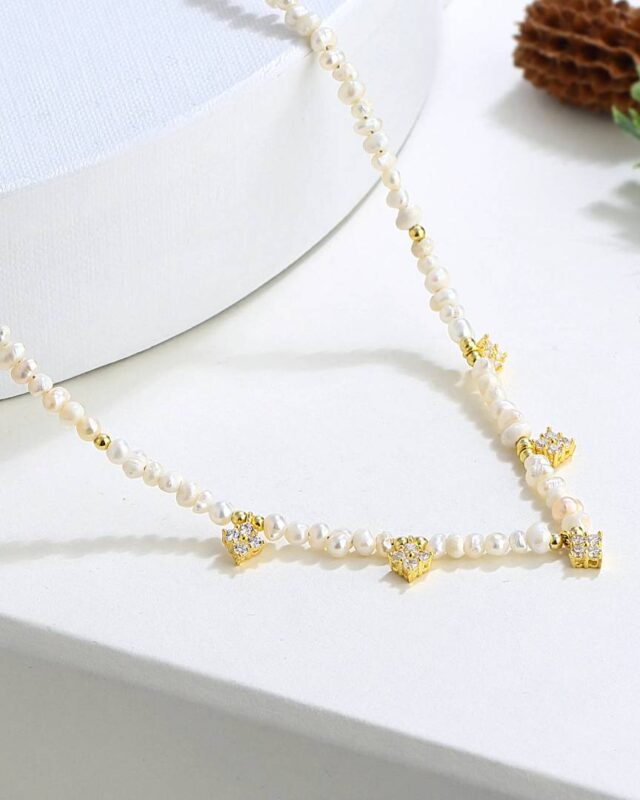


+ There are no comments
Add yours